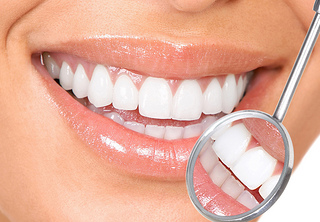The Importance of Oral Cancer Screenings
September 21st, 2016

In our continuing efforts to provide the most advanced technology and highest quality care available to our patients at Blair Ridge Dental, we proudly screen our patients for oral cancer. The fact is, every hour of every day in North America, someone dies of oral cancer, which is the sixth most common diagnosed form of the disease. The five-year survival rate is only 50 percent, and oral cancer is one of the few cancers whose survival rate has not improved.
Oral cancer can occur on the lips, gums, tongue, inside lining of the cheeks, roof of the mouth, and the floor of the mouth. Symptoms of oral cancer may include a sore in the throat or mouth that bleeds easily and does not heal, a red or white patch that persists, a lump or thickening, ear pain, a neck mass, or coughing up blood. Difficulties in chewing, swallowing, or moving the tongue or jaws are often late symptoms. While there is no way to predict exactly which individuals will get oral cancer, there are some potential causes we want you to know about. In some cases, it is possible to minimize these risk factors.
- Age (most patients diagnosed with oral cancer are over the age of 40)
- Tobacco use, either from cigarettes or smokeless chewing tobacco
- Excessive alcohol consumption
- Persistent viral infections, such as HPV16
- A diet lacking or low in fruits and vegetables
Finding out you have oral cancer can be devastating news. If you are concerned that you might be at risk for developing oral cancer, talk to us about screenings and other things you can do to reduce your risk. Through a routine visual inspection, Dr. Sardzinski, Dr. Wilken, Dr. Stanley, Dr. Hanson and Dr. Heying and our team at Blair Ridge Dental can often detect premalignant abnormalities and cancer at an early stage, when treatment is both less expensive and more successful, and can potentially save your life. Ask Dr. Sardzinski, Dr. Wilken, Dr. Stanley, Dr. Hanson and Dr. Heying and our team at Blair Ridge Dental about a screening at your next appointment!




